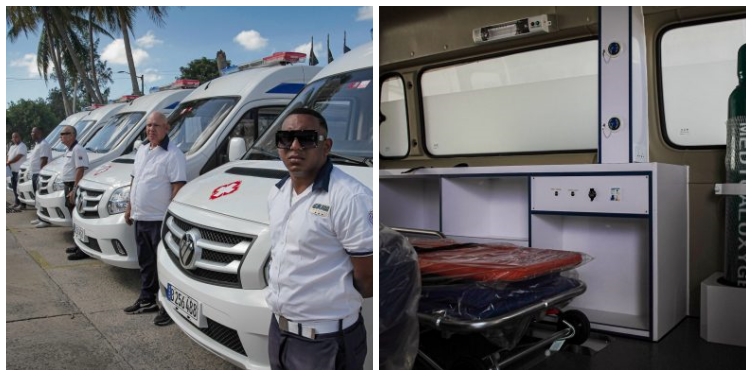AREQUIPA, Peru – The Minister of Transportation in Cuba, Eduardo Rodríguez Dávila, announced that starting next week some 15 new ambulances will begin operating in Havana as part of an experimental project within the impoverished Cuban health system.
In a publication from Facebookthe owner announced that the vehicles would contribute to the emergency medical services of the Cuban capital, an area that for years has been the subject of dissatisfaction and complaints by the population on the Island.
Rodríguez Dávila explained that the project arises as part of an agreement between the Ministry of Public Health, represented by the company SERVISAP; the Ministry of Transportation (MITRANS), with the participation of the entity MCV Comercial SA; and the Government of Havana, as representation of the SIUM (Integrated Medical Emergency System).
“With this new type of project, responsibilities are assigned to the different organizations that participate. Particularly, Transportation will ensure the availability of 15 new ambulances with their previously trained drivers,” the minister wrote.
For its part, the lacking Public Health system, affected by lack of inputs and infrastructural deterioration, must guarantee the medical personnel and equipment required to offer the service, and will contract the transportation service.
The vehicles, the publication highlights, will belong and be operated by the mixed company MCV Comercial SA, who will also take care of their maintenance.
The Cuban regime ensures that the ambulances have technical conditions that will allow the service to function properly, including a GPS control system, which will allow greater safety and efficiency in their use.
Cuban health system in the context of crisis
The Cuban health system is going through a critical moment marked by the low number of doctors and a general shortage of supplies and medicines. Currently, according to ONEI statistics, there are about 127 inhabitants per doctor on the Island, when in 2022 there were 113.
The average number of real medical care beds per service unit has also decreased in 2023, when 38,483 were counted, about 3,369 less than those available in 2022.
Despite the shortage of doctors and constant complaints from the population about the health crisis, the Cuban regime continues to export health professionals to other countries.
At the end of last year it emerged that almost 15,000 Cuban doctors left the island’s health system in 2023, according to official figures published recently by the National Office of Statistics and Information (ONEI).
According to the state entity, in 2023 they worked in the Ministry of Public Health (MINSAP) 80,763 doctors, about 13,303 fewer than those registered in Cuba in 2022, when there were 94,066.
In total, MINSAP’s medical staff in 2023 was 248,512 in 2023, when in 2022 it was 281,098, for some 32,586 workers. lessa number of desertions higher than that of 2022, when 31,308 people left the system.
Stomatologists, nurses, senior, middle and basic technicians and technologists and “other health graduates” left MINSAP in 2023.
In 2023 there were 3,125 fewer dentists than the previous year and 6,285 fewer “nursing staff.”














